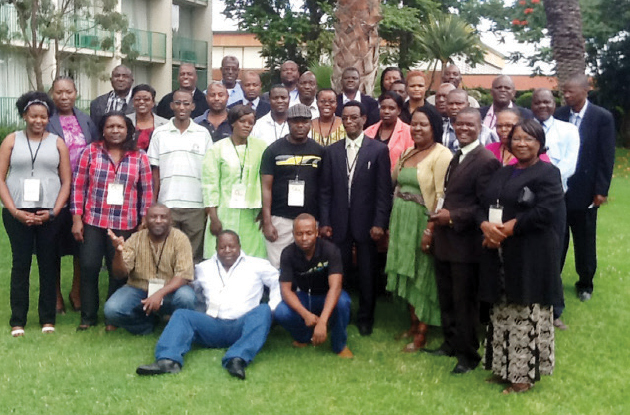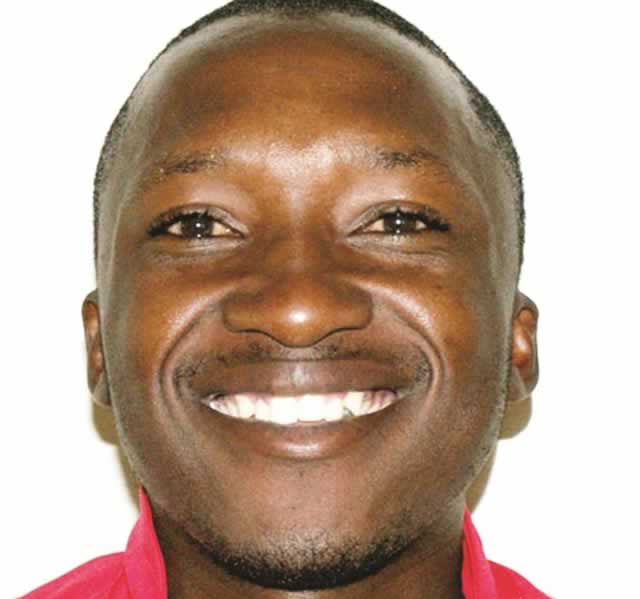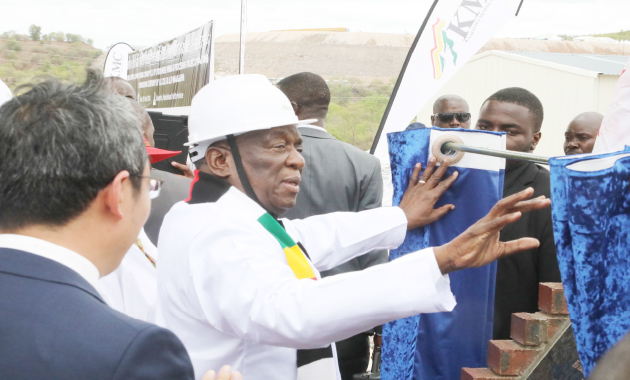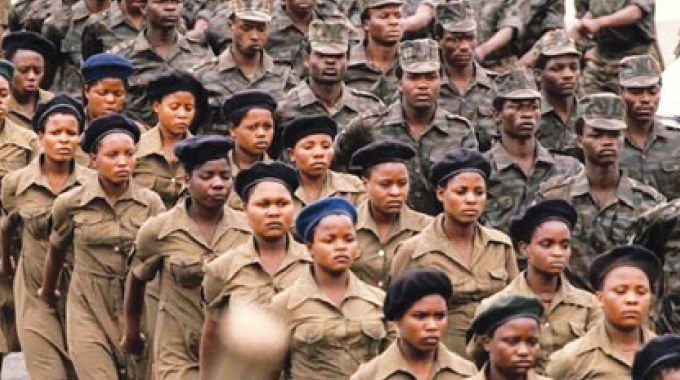The hypocrisy is staggering

Joram Nyathi Group Political Editor
YOU know you are in Zimbabwe when the formation of a foreign-funded NGO is more exciting news than the performance of the national economy. You are in Zimbabwe when negative reports about economic performance get enthusiastic applause. That is the state we are in.
The government is in the process of fulfilling some of its constitutional mandates by setting up various commissions. These range in scope from Gender, Media, Human Rights, Anti-Corruption to the National Peace and Reconciliation Commission (NPRC). All of them have generated more positive interest than one can ever hope for talking about national sovereignty, Zim-Asset, land reform or black economic empowerment — the real bread and butter issues which opposition parties and private media pretend should dominate national discourse.
The hypocrisy is staggering.
But it also shows the divide between 75 percent of the rural population who make their living from the soil and the “educated” urban populations who view the future in narrow political party terms, where regime change has become a lucrative industry and foreign-funded NGOs have become an economic sector in their own right. The more “crisis” there is, the better the prospects.
The various “independent” commissions should be seen in the same light: they open new theatres of political contest to weaken the centre, to strengthen opposition forces and act as outlets and inlets for foreign influence on how Zimbabwe directs and conducts its internal affairs. It is in these commissions where “international best practices” will be set on governance, human rights, property rights and everything else that can tame political leadership and give Zimbabwe’s ideological tenor.
Specifically, the Spectrum today seeks to express a few wild thoughts on the National Peace and Reconciliation Commission, an area with a strong bearing of the future of the nation and its territorial integrity.
On March 18, 2015, the Newsday newspaper ran an article with the heading; “Zanu-PF terror campaign haunts its authors”.
Part of the story: “Three Zanu-PF terror campaign leaders in Muzarabani last week had 14 cattle and 10 goats attached by the Mt Darwin Deputy Sheriff to compensate MDC-T activists who lost valuable property in the run-up to the 2008 run-off elections.
“On Tuesday last week, the Deputy Sheriff, according to the human rights lawyers, descended on Nixon Kampiyo, Kennedy Honde and Yotamu Munyuruka’s homesteads with a writ of execution granted by the High Court. Kampiyo lost four cattle, Honde lost six cattle and five goats while Munyuruka lost four cattle and five goats to the Deputy Sheriff…
“This follows a default judgment passed by High Court judge Justice Garainesu Mawadze last year following an application by three terror victims — Gideon Mukoshoware, John Savanhu and Moses Nyabuda — who are all known MDC-T activists.
“The court ruled that Mukoshoware should get compensation in the sum of $4,000, Savanhu ($30,000) and Nyabuda ($5,000) from the ruling party activists. The trio, through their lawyer Tsungai Mutongwizo from the Zimbabwe Human Rights NGO Forum, applied to have the application granted in default after the other parties failed to enter their appearance to defend notices.”
On the surface, there might seem like there is nothing wrong with the judgment. But looked at closely, it represents everything bad about our adopted legal system where the poor are always at the receiving end, and serves to tear apart societies than build lasting relationships. The “ignorance is no defence” dictum betrays the impulse that it was always the serfs, slaves and other lowly members of society who wouldn’t know the law while the aristocratic classes had access to the best advice.
As far back as 2009 Jomic had problems working with these NGOs who were always keen to set Zanu-PF and MDC-T supporters against each other over the alleged violence which happened in the run-up to the July 27 presidential election runoff. While Jomic sought to promote dialogue in the communities and to get the political and traditional leadership involved in resolving these conflicts, there were NGO lawyers representing only MDC-T “victims” issuing out summons to Zanu-PF “perpetrators” who didn’t know what to do. The result was to undo much of what Jomic was trying to build, thus stoking up further polarisation.
The issue is not that people should be denied justice. It is about the nature of justice and who defines it.
The Muzarabani story sums up the results — we have NGO lawyers spearheading property dispossessions and rekindling tensions ahead of the National Peace and Reconciliation Commission commencing its work. Instead of national reconciliation we have NGOs fanning interparty retribution in the name of transitional justice. We are being handed a Western template on how we should define what constitutes fairness — a legalistic model which says reconciling the aggrieved parties is less important than exacting a monetary or other material compensation from the accused who is denied basic natural justice to be heard.
We raise these issues because the future of this nation is more important than the narrow interests of political parties or sustainability of NGOs. People must define the kind of justice they want. We have a long history of violence in this country. The nation is in need of reconciliation and healing more than it desires a witch-hunt and retribution.
The Muzarabani incident has the danger of derailing the work of the NPRC because it is pushing a template which can spawn a contagion of people demanding monetary compensation for perceived political wrongs. It appeals directly to the basest instincts of greed and hatred as against the humanistic philosophy of ubuntu/unhu. We risk a situation where the NPRC is pulling in one direction while self-appointed champions of democracy and human rights pull in another, thus fermenting a perpetual crisis, endless recrimination and ever greater national polarisation.
Nowhere is this potential risk greater than in Matabeleland and Midlands provinces where most grievances, political or economic, often dress themselves in an ethnic cloak and trigger charges of deliberate targeting for persecution. The situation is not helped by the government’s failure over the years to put definitive closure to the Gukurahundi “madness”. The result is that political opportunists of every hue have exploited this “vacuum” to try and reap political capital by poking the healing wounds with flaming tongs.
In our four years of peace-building efforts at Jomic we discovered in our interactions with communities in all provinces that people were not necessarily interested in material compensation. Some did of course. Others simply wanted to meet the offender and for him/her to apologise.
What has kept the wounds festering in Matabeleland and Midlands provinces is the seeming cavalier attitude of government regarding the Gukurahundi survivors.
There has not been an attempt to assist victims’ children to get essential national documents such as birth certificates and national IDs to allow them to move on with their lives. They have been ignored and abandoned, as it were, to an unknown fate. People and organisations driven by all sorts of nefarious motives have stepped in to nourish these grievances, promising to offer a political solution, possibly including retributive justice.
It is in the best national interest that the National Peace and Reconciliation Commission’s noble mission is not subverted by forces whose agendas are so dark that its goal is perverted into a witch-hunt. That would be catastrophic. Sober heads are needed to steer this nation to reconciliation and enduring peace. That goal cannot be accomplished by crisis-driven institutions advancing foreign interests. That means the NPRC must at all times be alive to the hazards which lie its path.









Comments